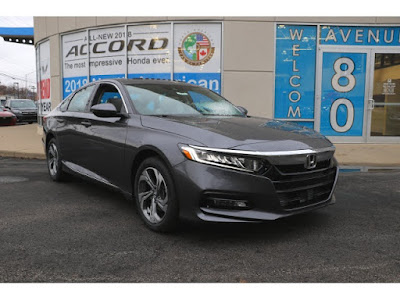After several weeks schlepping Honda CR-V's, HR-V's, Accords, Civics and Ridegelines (I never got to drive a Pilot or Odyssey although I'm sure they ride and handle very similar to a Ridgeline), I have come to two conclusions. First, if you drive older vehicles like I do, you're missing out on a lot. Cars today, even the biggish Honda Ridgeline that I drove, are magnificent. Overall they perform at levels that would have been considered "sports car like" ten years ago not to mention twenty years ago. However, and I knew this beforehand but now I'm 100% convinced, my feelings about "constant velocity transmissions", or what are referred to as "CVT's" has been cemented; they are the bane of the modern, mostly Japanese, automobile. And depending on the application, Honda's turbocharged 1.5 liter 4 cylinder engine is simply over matched by just about everything they drop it into save for a Civic with a six speed manual.
I'd find it hard to believe that even the most clueless of drivers would not notice that some thing's askew with, for instance, a Honda Accord "EX-L" with a CV-T. The EX-L I drove yesterday was loaded to the front grill with every modern contraption available today on a car. Adaptive cruise control, lane change monitoring, emergency braking, 700 air bags and who knows what else. The one thing it wasn't equipped with was the optional 2.0 liter turbo engine making 252 horsepower and backed up with a god's green, earth, gear driven, 10 speed automatic. Funny how when it comes down to a vehicle that is supposed to be performance orientated they use a conventional transmission. And one with 10 forward gears. However, Honda uses a CVT in a 306 horsepower version of their venerable Civic Si so I believe Honda is eventually going to use CVT's across their entire lineup.
For starters, you'd think a modern car with allegedly 192 horsepower would move off the line with some sense of urgency. Nope. Not an Accord with the 1.5 turbo and a CVT. It's almost as if the car's power train is distracted. "Oh, sorry. You want to move? Ummm, ok. Let's see...revs have to hit 3,000 rpm before we have enough torque to really go and...oh, here you go". That unresponsiveness is also accompanied by an engine drone, more like a moan, that if you didn't know better, makes the car sound and feel as though there's something wrong with the car.
On the open interstate and with the little 1.5 spinning freely, a stab of the gas does give you a pleasant push and the car passes eagerly but there's no mistaking the car for a Camaro SS - not that the Accord is supposed to be that but you get my point. As far as I'm concerned it's the mid 1970's all over again with still bloated hulks were saddled with performance robbing catalytic converters, low compression, smog gear saddled engines and microscopic axle ratios. Buyers back then had to be sold on "slow" being a good thing since a slow car was supposed to be good on gas.
Mercifully, the Big Three for the most part have eschewed the use of CVT's. Ford used a CVT on their "Five Hundred" they peddled years ago, Jeep used one on older Compass' and Patriot's. Saturn used one has well on a smattering of makes and models. Domestics with CVT's have been (mostly) "captive" or rebadged imports.
As far as foreign makes and models go, well...to CVT or Not To CVT...THAT Is The Question. And I'll pass.






No comments:
Post a Comment